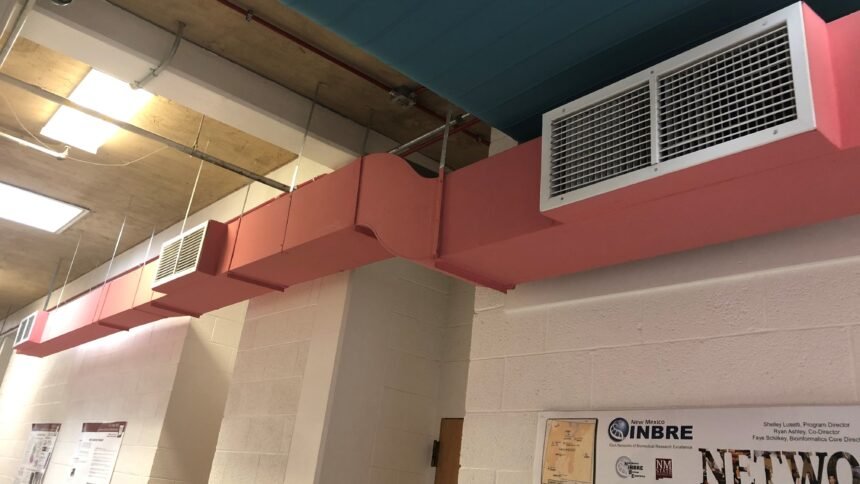NMSU looks at upgrades for building air filtration amid pandemic

LAS CRUCES, New Mexico -- As the Borderland continues to fight the spread of coronavirus, New Mexico State University has been looking at better ways to clean the air their Aggies breath.
With buildings being used for varying purposes, officials believe each building would need a different and specific level of air filtration.
As a result, special HVAC tests were conducted for each facility on campus.
Patrick Chavez, the director of utilities and plant operations, explained: "During this process we gathered over 5,000 system test points and generated over 3,000 pictures of existing HVAC equipment. This information will be used to determine which air quality improvement technology best suits each building function."
Clean air is a big deal to NMSU Associate Dean of Academics Antonio Chavez, who suffers from seasonal allergies.
“In the last few months we have been able to come back, it's been dramatic. The quality of the air has increased, so I think they have cleaned the air ducts, they have more clean air coming - so you can tell the difference,” said Chavez.
Students and faculty alike are appreciating the cleaner air.
Students Hanna Martinez and Andrew Pantoja lament having to wear their masks and hope for the day when they can take it off.
Martinez said, "I think now having our masks it’s a little more understood that we did take breathing without them for granted for sure. And now that we all are wearing them, I think we have a greater appreciation for not,” Pantoja added, “Its something I've never really thought about until wearing the mask and then you really realize you're having a hard time breathing now.”
The associate dean sees an importance in the air and energy.
"We rely on an air conditioning system that will give us fresh air, clean air, but we also want you to maintain some good energy. We don't want to waste energy, so we are recirculating air," he said.
The plant operations head said he was careful when inquiring about air filtration systems to balance the need between necessity and economics.
"Uninformed decisions at this scale can easily add hundreds of thousands of dollars to our operational expenses and has the potential to place financial burdens on our students," he explained.
The filtration system that the university is looking at implementing is the MERV-13.
The MERV scale runs from one to twenty. One through five being for homes and 13 being in the realm of hospital grade
